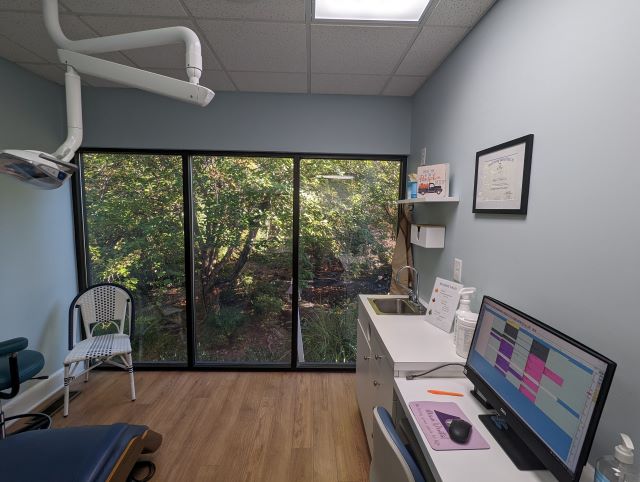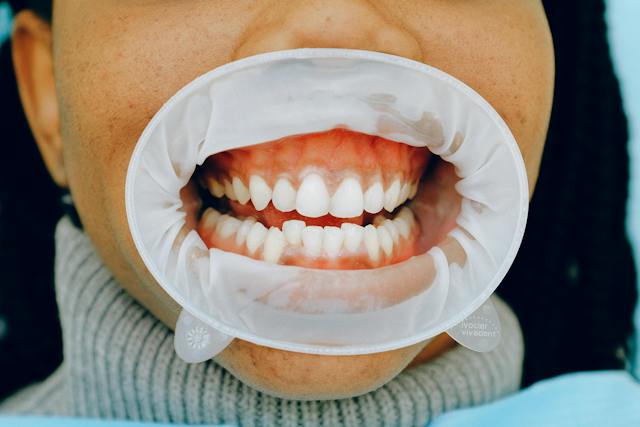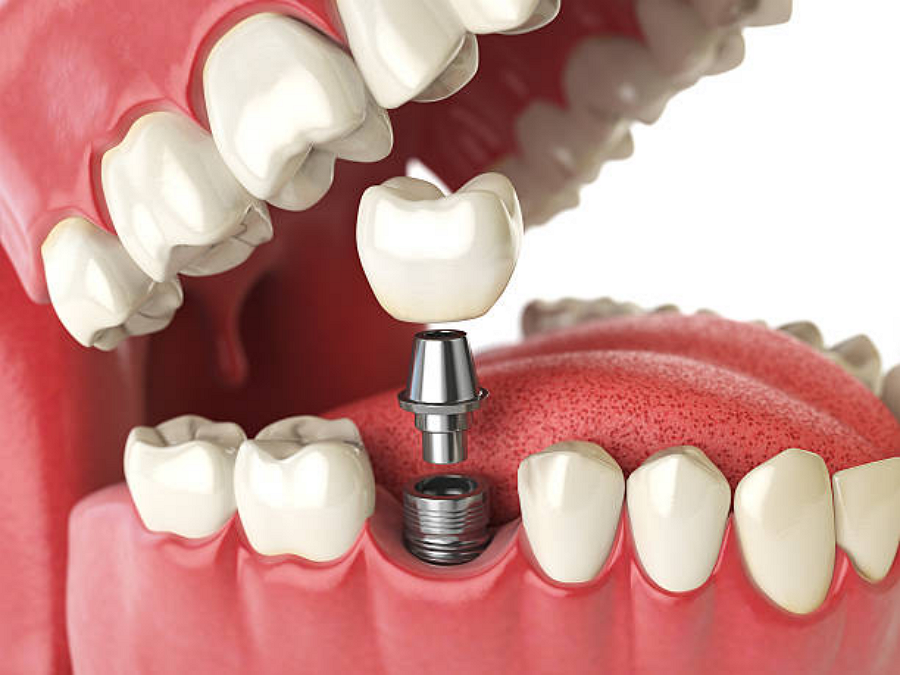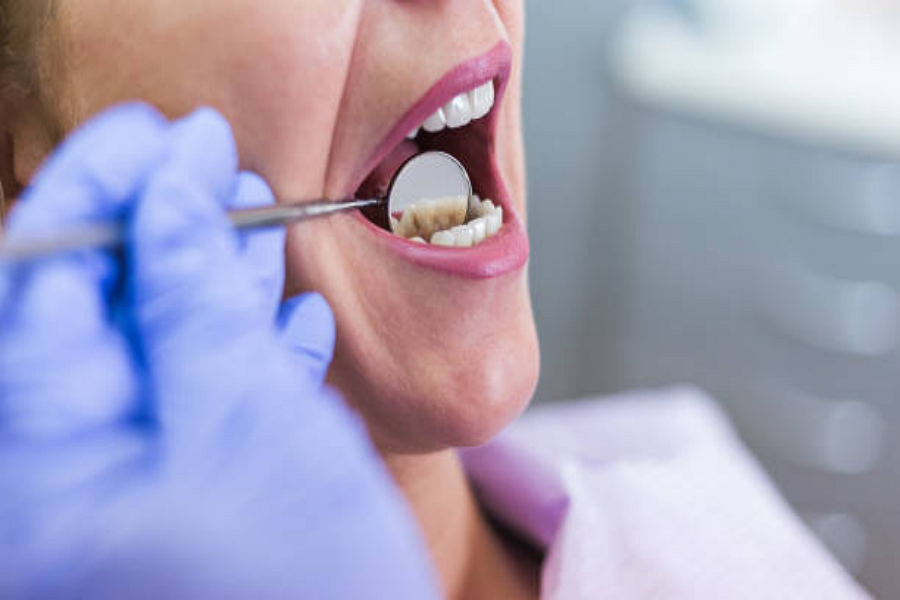Periodontal disease, also known as gum disease, can be a scary thought. You don’t want to imagine the possibility of losing your teeth and the pain that comes from swollen gums. Bleeding gums, often the first sign of gum disease, isn’t a welcome thought, either.
Nonetheless, gum disease is a common oral problem that can develop at any age. Our Elkin dentist prevents, sees, and treats gum disease in our office every year. We’re here to help bust some of the most widely circulated myths about periodontal disease so you can know what concerns to bring up with your dentist.
Dr. Nicole Manigault shares her insights about common gum disease myths below. Let’s take a deeper dive into what they are and why they aren’t necessarily true.
7 Common Myths About Periodontal Disease
Since our Elkin dentist uses gum disease treatments to reverse and correct the condition, they hear patients talk about some of the myths. Before we go into each of the seven myths in detail, we do have to say there may be a grain of truth in them.
After all, that’s how myths get started. But it doesn’t mean the grain of truth implies causation or that it applies to all situations. Without further ado, let’s start with the first gum disease myth.
1. Only Age Impacts The Onset of Gum Disease
Statistics about gum disease show age is a risk factor. Among adults age 65 and older, 70.1% have the condition. At the same time, 47.2% of adults age 30 or older have a form of periodontal disease. While age increases the likelihood of development, gum disease can happen when you’re younger.
Other risk factors include stress, autoimmune conditions, genetics, and hormonal changes. In most cases, age is not linked to these risks. The exception is hormonal changes that occur because of menopause and puberty. But when it comes down to it, it’s the hormonal shifts instead of the age increasing the risk of gum disease.
2. Gingivitis Happens to Everyone
Gingivitis is the earliest stage of periodontal disease. It’s often marked by symptoms such as red, swollen, and bleeding gums. While the statistics tell us more than half of adults age 30 or older have some form of gum disease, including gingivitis, not everyone develops it.
Those statistics also tell us that 52.8% of adults in the same age range don’t have a form of periodontal disease. Contrary to popular belief, your gums shouldn’t bleed. If you notice this symptom of gingivitis, it’s imperative to bring it up with your dentist. Dental practices like ours in Elkin, NC, can help you treat the condition before it gets worse.
3. Bad Oral Hygiene is Always the Root Cause
Poor oral hygiene is one of the risk factors for developing gum disease. If you don’t brush and floss your teeth, plaque and tartar buildup will eventually take their toll on your gums. But this is one of the common myths about periodontal disease that doesn’t account for the combination of risk factors.
4. Gum Disease Only Damages Your Teeth
While gum disease starts in the mouth, it can impact more than your oral health. Besides receding gums and loose teeth, periodontal disease puts you at risk for other health conditions. Some of those conditions include heart disease, diabetes, and irritable bowel disease. There are even indications gum disease can exacerbate COVID-19 infections and complications.
5. You Can’t Reverse Periodontal Disease
The beginning stage of gum disease, gingivitis, can be reversed. However, you and your dentist need to catch it in time. If you’re wondering what gum disease looks like in its early stages, here is what should set off the alarm bells.
- Signs of bleeding gums when you brush, floss, or rinse with mouthwash.
- Halitosis, also known as bad breath
- Gums that are visibly swollen
- Painful gums
- Gums that develop a dark red color.
If you or our Elkin dentist notices these gum disease symptoms, we’ll recommend a deep cleaning. A deep cleaning involves scaling and root planing to remove plaque and tartar from root surfaces.
6. You’ll Always Lose Your Teeth
Tooth loss usually happens when gum disease is advanced enough to cause bone damage. Besides scaling and root planing, there are other gum disease treatments your dentist can try. These include topical and systemic antibiotics to lower the bacteria levels in your mouth.
Periodontal surgery to remove deep gum pockets is another possibility. Whether someone loses their teeth to gum disease depends on how advanced it is. The success of each treatment your dentist recommends is an additional factor.
7. Only a Few People Develop Advanced Gum Disease
Severe gum disease impacts 9% of adults. If you consider a city with a population of one million, that’s 90,000 adults in that city with advanced gum disease. It’s not only a handful of people who develop advanced periodontal disease.
You can reduce your risk of developing the condition by sticking to your biannual professional teeth cleanings and dental exams. You can also practice good oral hygiene habits at home. But more importantly, don’t ignore the symptoms of what gum disease looks like. Also, don’t wait until your next scheduled cleaning.
Give your dentist a call as soon as you notice something’s wrong. Dental practices like ours in Elkin can take a look and recommend a course of treatment before it’s too late.
Treat Gum Disease in Elkin, NC

If you’re concerned you might have a problem with your gums, our Elkin, NC, dental practice can help with gum disease treatments and diagnosis. We also assist with guidance on preventative strategies if you have several risk factors for the condition. In addition, our dental exams and teeth cleanings can spot signs of gum disease you might miss.
Contact us today to schedule an exam to address your concerns. You may also book an appointment with us online. We’ll work with you to treat gum disease, whether you have an early or advanced case.








